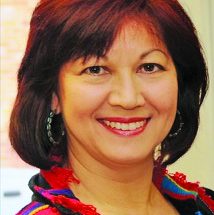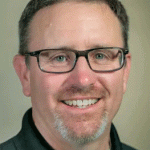Adjusting to new life can be challenging
By Robin Ferruggia
The Surveyor
While many people are aware of the current conflict between Ukraine and Russia, there’s another crisis unfolding there that few know about.
It’s a struggle of orphans to survive in a country where the standard of living has decreased 80 percent in the past 20 years, and where adequate nutrition and health care are not often available.
Approximately 100,000 orphans live in Ukraine’s 450 orphanages, many crowded institutions where little attention is paid to them and where the concept of having a toy of one’s own is unknown because everything belongs to everyone in the communal setting. About as many orphans live on the streets because the orphanages are full.
Berthoud residents Kris and Clarke Stoesz responded with courage and compassion when they founded the Ukraine Orphans Outreach, a non-profit organization, in 2007 to reach out and help older orphans.
“There were so many kids we fell in love with that we left behind,” said Clarke.
They have adopted four of the older orphans, are working with groups in Ukraine to provide transitional housing for those who age out of the system without being adopted, and helping with plans to protect orphans threatened by the current conflict who may need to be moved immediately in a state of emergency.
“Everyone is a citizen of their community, their country, and the world,” said Clarke. “Everyone does have an obligation to be a citizen in all the communities they reside in. To carry out orphan care is an obligation for everybody.”
Older orphans are more disadvantaged and have spent more years in institutions, he said. Only about 10 percent are ever adopted, in part because of all the red tape, flaws in the system, and errors involved in severing parental rights in Ukraine so they can be made available for adoption either in country or internationally.
Between 2003 and 2011 the Stoeszes adopted four older Ukrainian orphans: Natalie, Luke, Rhya (whose name means “from the heavens”), and Samantha. Their biological children, Amanda, 25, and Alex, 22, supported bringing these children into their home, said Kris.
“They really have a heart for orphans now. It opened their eyes,” she said, and helped them become more outward oriented, caring for those less fortunate than themselves.
The adopted children needed a lot of care and understanding.
“It’s traumatic to be in an institution,” said Kris.
They also have the trauma of the child abuse they were subjected to that resulted in their being taken from their parents to begin with. Some of the children, especially those who have the status of being gypsies, are abused by the other kids, who take their food, pick on them and even physically abuse them.
“It’s survival of the fittest there. It was super-hard for them because of their status,” said Kris.
Two of their adopted children, who were eventually taken from their parents, had to go out and beg for food just to be able to eat. And when they got home, their mother sent them back out to beg for food for her. They didn’t know what it was like to have an adult who cared for them until they were adopted.
One of their adopted children would take food and hide it in her room after first coming to live with them, Kris said.
“It’s common for them to hide food,” said Becky Orsi, Ph.D., a researcher at the School of Social Work at Colorado State University. Orsi is involved in research on children who have been adopted in the child welfare system in the U.S.
“The child hasn’t learned to feel safe about food. It takes time for the child to learn that food will be consistently available,” Orsi said.
There’s a lot these children need to learn to trust, not the least of which is their relationships with their new parents.
“They have to be taught about relationships,” said Kris. “They have a fierce sense of independence, a fear of losing control, and trust may take years to develop. As a mom, the hardest struggle I have is to develop trusting relationships with them, and where they will open up to us as parents.”
“It was a miracle,” said Samantha, 18, who was in an orphanage since she was 6 and adopted at age 15. “The family I got adopted into was the family I really wanted.”
“At first it was a challenge. Some challenges still have to be worked through, like being connected, because I’m not used to a family. I have a hard time trusting and being open. My parents are trying to support me as much as they can.”
“Parents are incredibly important in providing stability and structure that you take for granted,” said Orsi.
Many of these children suffer from “complex trauma,” a disorder resulting from multiple traumas, such as being subject to deprivation, having to take responsibility beyond their years, and other abuse. Even being removed from an abusive situation can be traumatic for them.
“The child is going somewhere new and doesn’t know if it will be safe there,” Orsi said. “This can result in a lot of challenging behaviors. The children need stability and professional help.”
Complex trauma can be treated. Parents learn how to help these kids, and the children get help to process their feelings.
“To re-learn behavior, the child needs a stable and structured environment,” said Orsi.
This can be difficult for parents to provide when they’re in poverty, or when they are in a war-torn country where “external trauma” impacts the family as a whole.
“A stable, structured family life helps mitigate deprivation,” said Orsi. “War disrupts this structure.”
While children in orphanages may not be directly impacted by the conflict with Russia, “caregivers may have difficulty providing consistent care and in a calm manner,” said Orsi.
The Stoeszes are working in collaboration with World Without Orphans and Ukraine Without Orphans to mobilize an evacuation of the orphanages and relocate the children to Western Ukraine when it becomes necessary. Orphans placed in foster homes will be kept with their foster families. In order to expedite their movement from the war torn area, the foster families will not be referred to as such to avoid red-tape hassles that will slow their ability to leave. They will be called “hosting families” instead.
“We’re considering sending kids to other countries, including the United States, as well,” said Kris.
“Absolutely whatever can be done to help families stay together or move quickly to a safer situation,” said Orsi. “Being able to keep families together is very important.” These children are already traumatized, and it is important to make the transition as smooth as possible. “If they’re going to be moved out of institution it’s important they know it will be safe and understand what’s happening,” said Orsi.
Transitioning from the orphanage when they age out is difficult as well. These children, who have not had the opportunity to develop stable and secure relationships with parents or other caregivers, often run into trouble.
“Ten percent of the orphans that age out commit suicide,” Kris said. “Sixty percent of the girls get involved in sex traffic. Seventy percent of the boys get in trouble with the law. Ninety percent of the inmates incarcerated in Ukraine were orphans.”
“They don’t have the best life skills,” said Clarke. They often struggle with unwanted pregnancies and substance abuse, continuing the cycle of child abuse.
The Stoeszes are working with ministries in the Ukraine to build transitional housing for those who want help when they age out. Nine boys were placed in the House of Grace in Kramators’k.
House parents receive a small salary, and the small stipends the children receive from the government when they age out are combined to help provide for their needs in the home.
“They have a family structure. They’re learning how a family should be,” said Kris. They also learn some skills by helping care for the house parents’ biological children.
“We started to shift our focus to transitional housing to help them become productive members of society,” said Clarke.
Plans are also underway to build a transitional housing facility for girls. Secure, stable attachments with parents or other caregivers make a huge difference for children of any age.
“What orphans need most is a mom and dad,” said Natalie, who was adopted at age 3 and is now 14. “Mostly, they need love. Every kid should have someone to look out for them.”
Editor’s note:
If you would like to make a donation or are interested in adopting a child from Ukraine, please go to http://www.ukraineorphans.org/ for more information.
For more information about children suffering from trauma, please visit the National Child Traumatic Stress Network at http://www.nctsnet.org/.
Those interested in research related to child welfare and adoption or social work programs at Colorado State University, please go to the School of Social Work’s Research and Engagement Center at http://www.ssw.chhs.colostate.edu/research/index.aspx.
- December, 23 2021

New Bites – December 23, 2021
*Total COVID-19 Cases: 48,659 (+779 from last week) Total Cases in Berthoud: 2,222 (+40) Deaths:...
- September, 13 2019

Therapeutic riding center unveils sta...
Courtesy photo - The inside of the new Lucky Hearts arena at Hearts and Horses...
- March, 13 2019

Winter Storm Ulmer packs a punch
Photo by Amber McIver-Traywick - White-out conditions with wind gusts up...
- February, 23 2023

Lady Spartans beat Mustangs 46-41 in ...
By Will Cornelius The Surveyor “It was not a pretty game — but it was...
- February, 25 2022

New Wildfire director adds classes, n...
Mary Bahus-Meyer wants 2022 to be a reset year for the Wildfire Community Arts Center....
- June, 18 2020

OPINION – Have you tracked the ...
By Larimer County Sheriff Justin Smith Have you tracked the progression? We have watched over...

POLICEBLOTTER
Community News
Northern Water sets C-BT quota at 70% for 2024
Community News

Emotions run high during Revere Property hearing
Community News
Snowpack at 119% above normal
Community News

Karspeck to serve third term as Berthoud mayor
Community News

OPINION – No bitchin’ allowed
Community News
Roy Tripi to become principal of BHS on July 1
Community News
COMMUNITY CALENDAR:
Community Calendar – add an event
Homestead Fine Art Gallery First Fridays OPEN HOUSE
03 May 4:00 PM - 7:00 PM
Homestead Fine Art Gallery First Fridays OPEN HOUSE
07 Jun 4:00 PM - 7:00 PM
Homestead Fine Art Gallery First Fridays OPEN HOUSE
05 Jul 4:00 PM - 7:00 PM
Homestead Fine Art Gallery First Fridays OPEN HOUSE
02 Aug 4:00 PM - 7:00 PM
Homestead Fine Art Gallery First Fridays OPEN HOUSE
06 Sep 4:00 PM - 7:00 PM
Homestead Fine Art Gallery First Fridays OPEN HOUSE
04 Oct 4:00 PM - 7:00 PM

